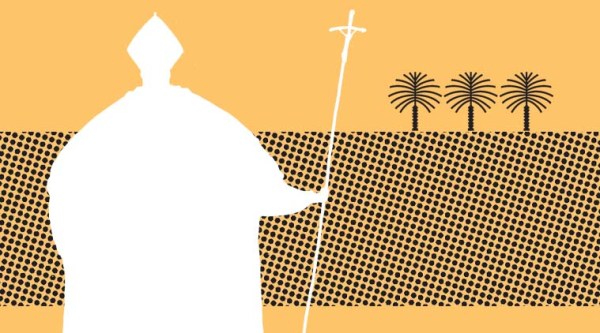The Pope, the Dharmaraja
The pontiff’s UAE visit is historic in terms of inter-faith harmony and peace. But do the symbolic compromises he made diminish his moral sheen?

Pope Francis is the person closest to being a Dharmaraja today. He has no army. His domain has no international currency. He rules a postage-stamp-size state and yet, his visits to countries across the world, and his pronouncements on global issues, receive media headlines and global attention.
For example, his encyclical Laudato Si, (“praise be to you” in Latin), was debated by scholars and policy-makers across the world for its perspective on climate change, refugees, and the global system of production and consumption that is threatening life on earth. We have no right, he wrote, to exterminate other species that, by their very existence, also reveal the glory of God.
In 2018, he admonished the leaders of the World Economic Forum in Davos when he told them that we “cannot remain silent in the face of the suffering of millions of people whose dignity is wounded, nor can we continue to move forward as if the spread of poverty and injustice has no cause.” Pope Francis’s moral message is globally discussed for his statements are seen as being truthful and on behalf of a just order. In these morally uncertain times, he is regarded as a beacon who leads us on what is right and wrong, just and unjust. More than any other leader since Nelson Mandela, and before that Mahatma Gandhi, he is today’s Dharmaraja.
So, how should we view his visit from February 3-5, to the UAE?
The UAE is a modern Arab nation seeking to occupy a global niche as a country promoting tolerance. They are sponsoring an interfaith dialogue between Muslims and Christians to jointly combat religious extremism. 2019 has been designated as the year of tolerance. The UAE government website announces their goal to “eradicate ideological, cultural and religious bigotry in society” in pursuit of which they invited Pope Francis and the Grand Imam of al-Azhar, Ahmed el-Tayeb, to co-sign, and offer the world, a Document on Human Fraternity for World Peace and Living Together. This is an important step in inter-faith dialogue. It is a historic achievement and that it took place on the 800th anniversary of the meeting between St Francis and the Sultan al-Malik al-Kamil of Egypt when, in the middle of the conflict, St Francis asked to meet the Sultan who received him with the utmost grace and courtesy, and must be applauded. For St Francis, it served as the inspiration for his prayer “Make me a channel of your peace”.
The visuals of the signing are remarkable in the warmth and brotherliness that they convey between the Pope and the Grand Imam. We see them greeting each other with a kiss, in the friendly Arab manner, and then laying the foundation for a church and a mosque that will be built side by side in Abu Dhabi. These pictures were beamed to billions across the world, sending out a message of fraternity very different from the images of hostility between the two religious that ISIS had earlier conveyed. In the ongoing dialogue for peace and harmony between two of the world’s largest religions, the papal visit was an important contribution. The UAE must indeed be complimented for convening the meeting.










.png)




























No hay comentarios:
Publicar un comentario